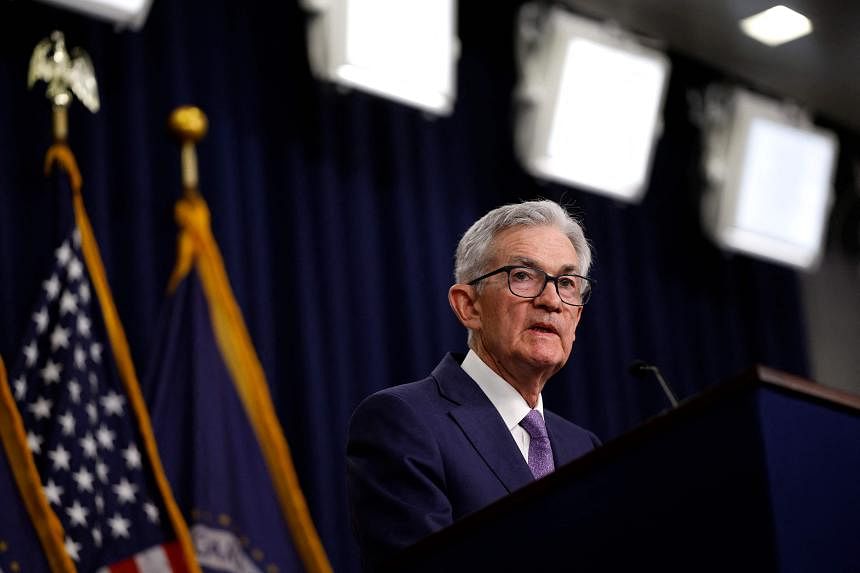
Key Takeaways:
The US Fed’s Remarkable Progress on Inflation Revealed by Powell: What Does It Mean for Consumers?
In recent remarks by Jerome Powell, the Chairman of the US Federal Reserve, the remarkable progress made by the Fed on inflation was revealed. This has attracted the attention of consumers and economists alike, as the impacts of inflation can significantly affect everyone’s daily lives. In this article, we will explore what this progress means for consumers and how it can influence consumer behavior and the overall economy.
Before diving into the US Fed’s progress on inflation, let’s briefly understand what inflation is and how it affects consumers. Inflation refers to the general increase in prices of goods and services over time. When inflation is high, the purchasing power of consumers decreases as they have to pay more for the same products.
High inflation can have various impacts on consumers. Firstly, it erodes the value of money, making it harder for individuals to afford the same standard of living. Secondly, it can lead to higher borrowing costs, as interest rates tend to rise during periods of inflation. This directly affects consumers, making it more expensive to take out loans or mortgages. Finally, inflation can also impact the overall economy, influencing business decisions, investment patterns, and employment levels.
In his recent address, Powell highlighted the remarkable progress made by the US Federal Reserve in addressing inflation concerns. The central bank has been implementing various policy measures to keep inflation in check and stabilize the economy. This progress has several implications for consumers:
1. Lower inflation rates: As the Fed continues to make progress in curbing inflation, consumers can benefit from lower inflation rates. This means that the prices of goods and services may not rise as rapidly, allowing individuals to stretch their dollars further.
2. Stabilized interest rates: One way the Fed manages inflation is by adjusting interest rates. When inflation is high, the central bank raises interest rates to cool down the economy. On the other hand, when inflation is low, the Fed may lower interest rates to stimulate economic growth. Stable interest rates can offer consumers better borrowing conditions and the opportunity to make more affordable investments.
3. Increased consumer confidence: The Fed’s progress on inflation can have a positive impact on consumer confidence. When consumers see that the central bank is actively working towards stabilizing prices and controlling inflation, they tend to gain confidence in the overall economy. This confidence can translate into increased consumer spending, which plays a crucial role in driving economic growth.
Given the potential impact of the US Fed’s progress on inflation, consumers should pay close attention to the central bank’s actions and decisions. Understanding the Federal Reserve’s policies can empower individuals to make informed financial decisions. Here are some reasons why monitoring the Fed’s actions is vital for consumers:
1. Better financial planning: By staying informed about the Fed’s progress on inflation, consumers can make better financial plans for the future. This includes making decisions about saving, investing, and borrowing, considering factors such as interest rates and inflation forecasts.
2. Adjusting investment strategies: Inflation has a significant impact on investment returns. By monitoring the Federal Reserve’s actions, consumers can adapt their investment strategies to align with the changing economic landscape. For example, during times of low inflation, consumers may choose to invest more in assets that appreciate in value to combat the eroding effects of inflation.
3. Preparing for interest rate changes: Interest rates play a crucial role in determining the cost of borrowing and the returns on savings. If the central bank raises interest rates to combat inflationary pressures, consumers need to be prepared for potential increases in mortgage rates, credit card interest rates, and borrowing costs. Being proactive in anticipating and managing such changes can help consumers avoid financial strain.
The US Fed’s remarkable progress on inflation, as revealed by Jerome Powell, comes with significant implications for consumers. From providing consumers with lower inflation rates and stabilized interest rates, to boosting consumer confidence, the Federal Reserve’s actions play a crucial role in shaping the economy and affecting individual financial decisions. By proactively monitoring the Fed’s progress and understanding its implications, consumers can make informed financial choices, benefitting their own financial stability and contributing to a healthier economy as a whole.
[/myfaq>
Source: insightfullgo.com

